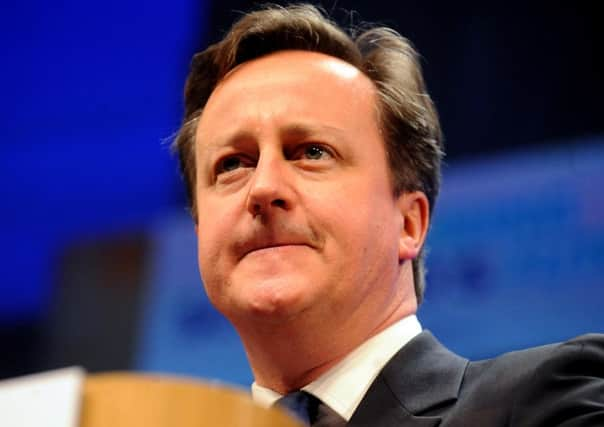David Cameron blamed for ISIS rise in Libya by MPs
This article contains affiliate links. We may earn a small commission on items purchased through this article, but that does not affect our editorial judgement.


In a scathing report, the Commons Foreign Affairs Committee heavily criticised David Cameron for turning a limited intervention intended to protect civilians into an “opportunist policy of regime change” based on inadequate intelligence.
It said the then prime minister’s failure to develop a coherent strategy to support the country following the overthrow of Gaddafi had led to political and economic collapse, internecine warfare, humanitarian crisis and the rise of Islamic State (IS) in north Africa.
Advertisement
Hide AdAdvertisement
Hide AdMinisters and officials should have realised that the rebels included a “significant Islamist element”, the committee said as it called for an independent review of the way decisions were taken by the National Security Council (NSC).
It warned the international community must now get behind the United Nations-backed Government of National Accord (GNA) to prevent the country descending into all-out civil war.
Committee chairman Crispin Blunt said: “The UK’s actions in Libya were part of an ill-conceived intervention, the results of which are still playing out today.”
An international coalition led by Britain and France launched a campaign of air and missile strikes against Gaddafi’s forces in March 2011 after the regime threatened to attack the rebel-held city of Benghazi.
Mr Cameron argued the intervention was necessary to prevent a massacre of civilians but the committee said the available evidence showed that, despite his appalling human rights abuses over 40 years, Gaddafi had no record of large-scale attacks on Libyan civilians.
It said the Government “selectively took elements of Gaddafi’s rhetoric at face value” while there was no evidence it had carried out a proper analysis of the nature of the revolt against him.
“The possibility that militant extremist groups would attempt to benefit from the rebellion should not have been the preserve of hindsight,” it said.
“It may be that the UK Government was unable to analyse the nature of the rebellion in Libya due to incomplete intelligence and insufficient institutional insight and that it was caught up in events as they developed.
Advertisement
Hide AdAdvertisement
Hide Ad“UK strategy was founded on erroneous assumptions and an incomplete understanding of the evidence.”
Once the immediate position of Benghazi was secure, the committee said there were political options - including through Tony Blair’s contacts with Gaddafi - which might have delivered civilian protection and a change of regime at a lesser cost to both the UK and Libya, but these were not pursued.
“By the summer of 2011, the limited intervention to protect civilians had drifted into an opportunist policy of regime change. That policy was not underpinned by a strategy to support and shape post-Gaddafi Libya,” the committee said.
“The result was political and economic collapse, inter-militia and inter-tribal warfare, humanitarian and migrant crises, widespread human rights violations, the spread of Gaddafi regime weapons across the region and the growth of Isil in North Africa.
“Through his decision-making in the National Security Council, former prime minister David Cameron was ultimately responsible for the failure to develop a coherent Libya strategy.”
While the Government identified the need to secure the large stockpiles of weapons in the aftermath of the overthrow of Gaddafi, the committee said it was probable none of the countries involved was prepared to commit the necessary resources.
As the leaders of the coalition, it said Britain and France had a “particular responsibility” to support Libyan reconstruction but the failure to establish security of on the ground meant it was an “impossible task”.
The committee said there should now be an independent review of the operation of the NSC - which was set-up by Mr Cameron - to see if it had succeeded in addressing the weaknesses in government decision-making identified in the run-up to the 2003 invasion of Iraq.
DOWNLOAD THE SCOTSMAN APP ON ITUNES OR GOOGLE PLAY
